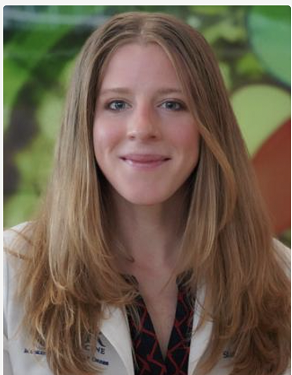Researchers Have Free Access to Secure Clinical Data Thanks to ISD-UR CTSI Collaboration
Accessing electronic medical record data in a safe, secure, and timely manner is critical for clinical researchers. Here at the University of Rochester, researchers access and analyze such protected health information (PHI) through the Secure Environment for Research Data Analytics (SERDA), an analysis, data storage, and routine backup platform developed and administered by the Information Systems Division (ISD) and the UR Clinical and Translational Science Institute (CTSI) Informatics and Analytics team. Best of all, it is free to use.
ISD and UR CTSI collaborate to improve the capabilities of researchers through innovation and development of tools like SERDA. SERDA offers both the data and tools necessary to conduct analytical work on research data and is part of the University’s data loss prevention strategy. Because the system can be accessed from researchers’ computers, it is accessible while keeping PHI secure.
A Secure Work Environment for Critical Research
 Stephanie Vachon, DO
Stephanie Vachon, DO
Stephanie Vachon, DO, a Neonatology Fellow, is one of the University researchers who has benefited from this collaboration. After contacting the UR CTSI Informatics and Analytics team, Vachon received support to launch a SERDA setup for her Institutional Review Board-approved study, “Pulmonary Hypertension in Preterm Infants: The Effect of Screening At-Risk Infants on Morbidity and Mortality.” She needed a secure work environment to manage the data of her study.
“My project explores the impact of screening for pulmonary hypertension in at-risk preterm infants on length of stay in the neonatal intensive care unit,” Vachon said. “SERDA has given me a safe place to store my data and work with it in Excel.”
SERDA workstations are assigned to individual users on research teams and come with a consistent suite of software. The PHI stored within cannot leave that virtual environment, as the workstation prevents access to points that present risks, such as cloud storage, printers, email, and others. Teams can collaborate through designated project shares via secure network storage, preventing unauthorized users from inadvertently or intentionally accessing PHI data.
ISD initially developed SERDA as a service, while UR CTSI Informatics and Analytics created and supported operational practices to provision and deploy the virtual SERDA machines for researchers. The teams work together to support that workflow, coordinating on new software licensure and installation for users. ISD maintains the SERDA environment while UR CTSI provides the front-end service for researchers requesting access.
Technically Robust, User-Friendly
Christine Brower, MPH, MBA
“The goal of SERDA is to protect PHI,” said Christine Brower, MPH, MBA, program manager for the Research Data Warehouse initiative. “That's why the initiatives between UR CTSI and ISD are vital—because we're leveraging infrastructure within ISD while working with UR CTSI to secure PHI in the processes around research.”
The environment looks like a common computer desktop, but with brand identity and logo to differentiate it.
“The only thing that you would notice that's different is that you do not have the ability to access things like Box or Gmail—any of those places where you could potentially export data, then have access to it outside of the environment," Brower said. "We’ve built-in substantial guardrails to protect PHI. The bottom line is that SERDA protects data.”
Brower also noted that SERDA allows for collaboration across University campuses. For example, if a URMC user needed to collaborate with someone from the Simon Business School, ISD and UR CTSI can connect the team via the deployment of multiple SERDA machines.
Striking a Balance Between Security and Research Needs
 Jack Chang, PhD
Jack Chang, PhD
Jack Chang, PhD, senior associate and lead informaticist at UR CTSI, helps researchers get access and secure the features they need, ensuring there is a balance between the requirements of PHI and the needs of researchers. He says that SERDA’s capabilities will continue to grow as the teams seek to better serve researchers at the University.
“SERDA is expanding into the Azure cloud environment, which provides a HIPAA-compliant, scalable computational environment for electronic medical record data analysis and leverages Azure Data Science Machine Learning tools,” Chang said.
Since its launch in 2021, SERDA has supported 15 research projects by 46 users across 10 departments at the University. Setup time for new SERDA projects takes approximately one to two weeks. Learn more about SERDA and request access to begin.
This article was written by Jonathan Raab with significant contributions from Margaret Gan and Matt Ulakovic.
Jonathan Raab | 8/27/2024



